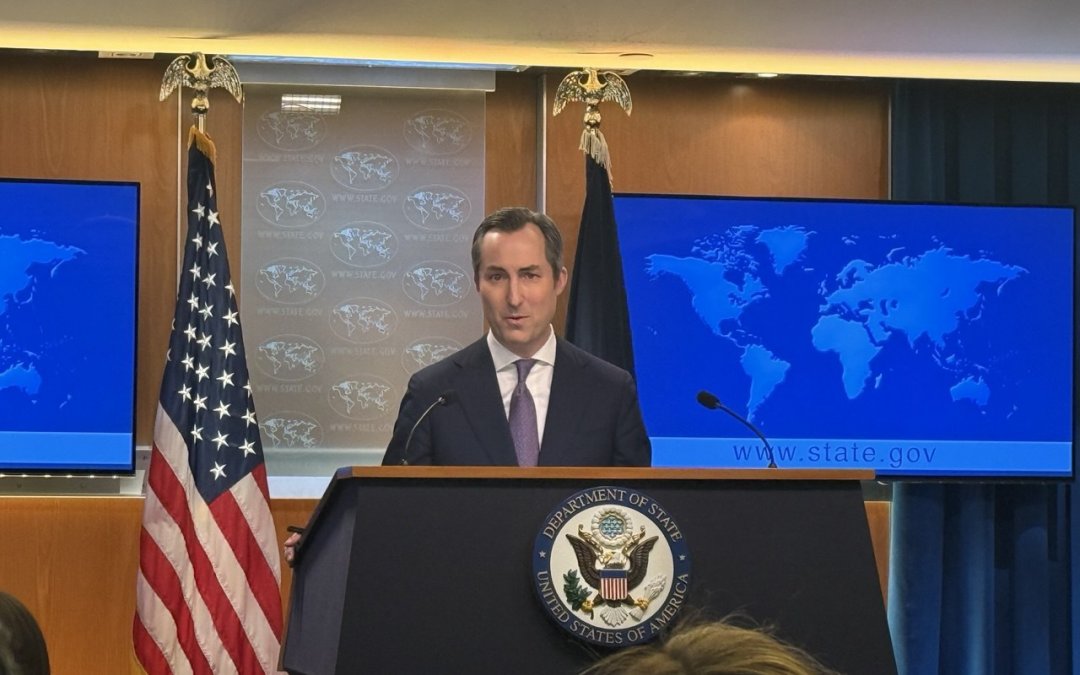WASHINGTON — After Israel and Hamas agreed to a ceasefire in Gaza Wednesday and the release of some hostages, the United States remained determined to prevent Hamas from governing Gaza again, according to State Department Spokesman Matthew Miller.
According to Miller, the US had made it clear from the start of negotiations that one of the main conditions is ensuring Hamas does not return to power in Gaza.
“We hear that from countries across the region that you cannot have a terrorist organization that is committed to the destruction of Israel that has launched this horrific conflict that has resulted in the death of more than 45,000 Palestinians,” Miller told journalists during his press briefing.
After 15 months of war, the ceasefire agreement brought some hope that the bloodshed could end. During the attack on Oct. 7, more than 1,200 people were killed in Israel by Hamas-led militants. In 15 months of war, over 46,000 Palestinians were killed as a result of Israel’s attacks.
Miller said it was crucial that neither Israel nor Hamas takes power in Gaza. The parties “who we have talked to about contributing financial support, about contributing security support to Gaza, are in any way going to be willing to step up and do that if they see either a future where Gaza is dominated by Israel or if it’s dominated by Hamas,” he said.
President Joe Biden first proposed the framework for the deal in late May last year and ultimately received unanimous approval by the UN Security Council. Miller said that Hamas had been the main obstacle in reaching an agreement, especially in July and August last year, when the US thought they were getting very close to a deal.
“We saw Hamas around that point, just decide that they weren’t going to negotiate off of their position anymore. They had a position, they weren’t going to budge. They weren’t going to move at all. And we were still at the table. Israel was still willing to be at the table. Hamas wasn’t,” said Miller.
There were also periods of times, Miller added, when Hamas was unable to negotiate because they lacked leadership.
Miller ended by wishing farewell to the reporters because it was expected to be his last briefing. Some reporters used their phones to take pictures with him.

